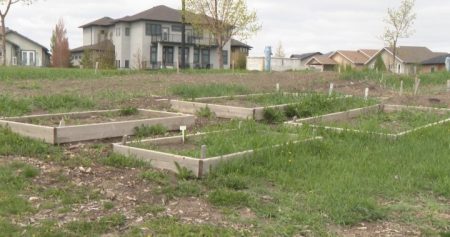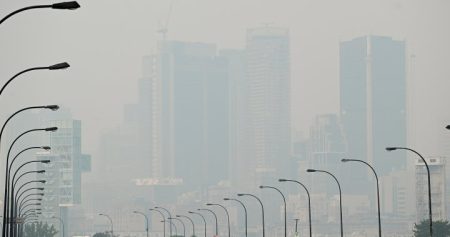The University of Toronto recently met with student protesters behind a pro-Palestinian encampment on campus and stated that they see a way forward after the meeting. The encampment was set up in an area known as King’s College Circle and the protesters are calling on the university to disclose ties with the Israeli government and divest from Israeli companies. Initially, the university gave protesters a deadline to leave, but later decided not to remove the encampment as long as activities remained peaceful. Sandy Welsh, the university’s vice-provost of students, mentioned in a statement that discussions with student representatives have been constructive and they are working together to address concerns about health and safety, as well as reports of threatening or hateful language.
Pro-Palestinian activists have also set up tents at other universities in Canada, including McGill University in Montreal, the University of Ottawa, McMaster University in Hamilton, and the University of British Columbia campus in Vancouver. This widespread protest across different campuses reflects a larger movement advocating for Palestinian rights and criticizing institutions that have ties to the Israeli government. The presence of these encampments highlights the importance of addressing issues related to human rights, international relations, and social justice within academic settings, sparking important conversations and raising awareness about the Palestinian cause.
The decision of the University of Toronto to engage in discussions with student protesters rather than forcefully removing the encampment demonstrates a willingness to listen to student concerns and address them in a collaborative manner. By acknowledging the importance of student voices and allowing for peaceful protest on campus, the university is creating a space for dialogue and engagement on complex geopolitical issues. This approach may lead to positive outcomes and potential changes in the university’s policies regarding its ties with the Israeli government and investments in Israeli companies.
The discussions between university administrators and student representatives regarding the pro-Palestinian encampment have been focused on addressing concerns about health and safety, as well as reports of threatening or hateful language. This reflects a commitment to maintaining a safe and inclusive campus environment while also respecting the rights of students to voice their opinions and engage in activism. By actively working to ensure the well-being of all members of the university community, the administration is demonstrating a commitment to upholding values of respect, diversity, and social justice.
The presence of pro-Palestinian activists at multiple universities in Canada, including McGill University, the University of Ottawa, McMaster University, and the University of British Columbia, indicates a widespread grassroots movement advocating for Palestinian rights and seeking to raise awareness about the Israeli-Palestinian conflict. These protests serve as a platform for students to express their solidarity with the Palestinian people and call for institutional accountability in relation to investments and partnerships with the Israeli government. The collective actions of students across different campuses illustrate a growing consciousness and engagement with global issues, encouraging dialogue, education, and activism within academic communities.
Overall, the ongoing discussions and interactions between university officials and student protesters at the University of Toronto and other Canadian universities showcase a dynamic and evolving campus environment where activism, advocacy, and dialogue play crucial roles in shaping institutional policies and practices. By engaging in constructive conversations and addressing student concerns, universities have the opportunity to foster inclusive, diverse, and socially conscious communities that support human rights, justice, and equity. The presence of pro-Palestinian encampments on campuses serves as a catalyst for reflection, change, and solidarity, highlighting the interconnectedness of local and global struggles for liberation and equality.















